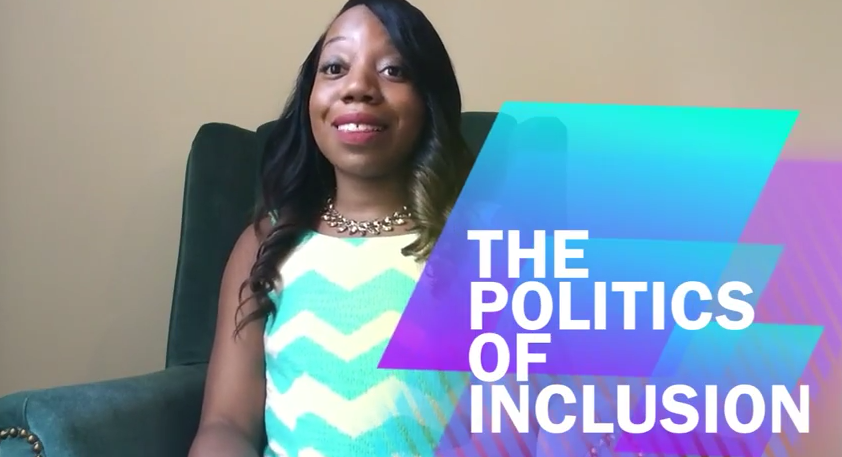Reading
Add Comment

"When we create movements, sites or spaces or choose to have these discussions, we're pursuing a project to throw off centuries of baggage that have been heaped on our shoulders. We are reclaiming and refashioning our identities in our own terms. We have to do this work because we are living in a society that tells us we are not enough. That we should be silent and ashamed. It's just not in our best interest of black women to pat the well-intentioned on the back and pretend like all of our issues are the same."
Watch the full video below:
Transcript:
Hi! My name is Kim and I'm the founder and editor of For Harriet! So let's talk about the politics of inclusion.
I created for Harriet as a space that centers and privileges the voices of black women because that I understand that when you are living and thriving in a world in which you were never meant to survive, claiming space is an act of resistance. It is a revolutionary act, and we should not apologize for it.
Unfortunately that alienates people who believe they have a right to be represented, and I don't care. If you're a member of a privileged group, before you sit down at a table you should know whether or not you were invited. And sometimes you're not going to have a seat, and that's OK.
Frequently at for Harriet a Black woman will share her story or express an opinion and someone will comment that this is not just a Black woman's issue or claim that the lens that we are using to interpret certain experiences is too narrow. These comments are not only inappropriate and disrespectful, but they evidence a fundamental lack of understanding of the ways that structural inequality work and the unique ways that oppression impacts those of us who move through the world as Black women.
When we create movements, sites or spaces or choose to have these discussions, we're pursuing a project to throw off centuries of baggage that have been heaped on our shoulders. We are reclaiming and refashioning our identities in our own terms. We have to do this work because we are living in a society that tells us we are not enough. That we should be silent and ashamed. It's just not in our best interest of black women to pat the well-intentioned on the back and pretend like all of our issues are the same
My liberation is not reliant on white women or black men identifying with my experience. There are very few spaces where Black women can be experts on our own experiences, and we should to protect them fiercely.
The aim is not to minimize the experiences of those were not a part of the community. I don't want to dismiss them, but I am trying to push us to think critically about the ways in which our bodies are read differently because of our different histories. We may have similar experiences, but the problem is that we talk about race, gender, and sexuality but we're not taught to be critical thinkers about those things because those conversations are hard. So we are talking about race as skin color; talking about gender and sexuality as fixed biological identities, and we can't properly interpret what they really are because we don't have the knowledge or the tools.
This, of course, doesn't mean that those who are not a member of the community can't come and learn. It doesn't mean that you cannot contribute to the conversation, but you should do so with an understanding that these sorts of things spaces were created because of ongoing exclusion.
I love the fact that we can all relate to each other on a human level, but while you're relating and identifying, remember that our bodies are political. Do not make it about you. I much prefer to take some of that into be an easy toward fighting depression so we don't have to work so damn hard to be represented
We all have a responsibility, before we enter any space, discussion or movement, to take stock of who it's for and why it was created. Your mere presence does not transform the intention. I don't care how strongly you identify with the experience. I don't care how knowledgeable you are about it. If you don't live it, you don't have the right to co-opt.
As a black woman I can say that you are not doing me a favor by trying to collapse my experience into yours in order to suit your needs. It's not tribute. It's not sisterhood. It's exploitation. My experience as a black woman isn't community property because my depression isn't.
It is not my responsibility to explain anything to you to teach you or to hold your hand. I'm using all of my energy to get free--to disentangle myself from white supremacy and to build.
Kimberly Foster is the founder and editor of For Harriet. Email or Follow @KimberlyNFoster intersectionality racism sexism
0 comments:
Post a Comment